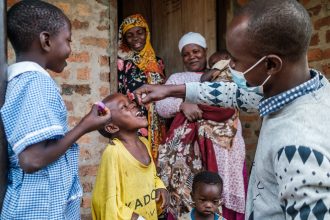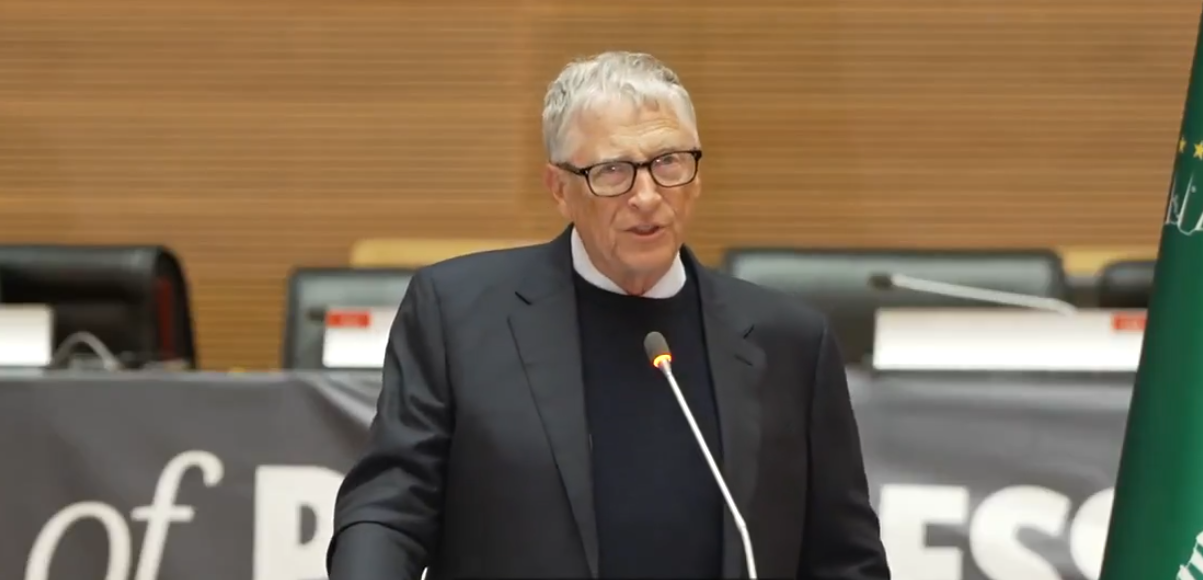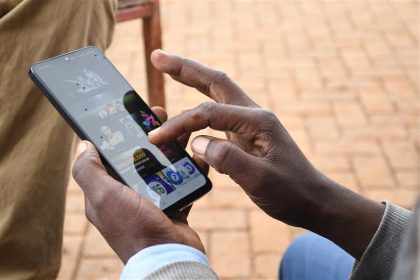Over two decades, the $200 Billion will go to maternal and child health, eradicating deadly infectious diseases, poverty alleviation.
Bill Gates announced that the majority of his $200 billion philanthropic pledge over the next 20 years will go to Africa, focusing on partnerships with governments that prioritise health and well-being.
Speaking this week at the African Union in Addis Ababa to over 12,000 officials, health workers, and youth leaders, he emphasised the continent’s potential to drive progress through innovation and African-led solutions.

His 20-year pledge focuses on ending preventable maternal and child deaths, eradicating deadly infectious diseases in the next generation, and lifting millions out of poverty. To support this, the Gates Foundation has expanded its footprint across Africa, with offices in Ethiopia, Kenya, Nigeria, Senegal, and South Africa.
Central to Gates’s vision is technology, particularly artificial intelligence (AI), as a driver for the future of healthcare in Africa. For example, Rwanda uses AI-powered ultrasound devices to help midwives in remote areas detect high-risk pregnancies sooner. This innovation helps save lives by improving access to maternal care in hard-to-reach communities.
Drawing on Africa’s history of leapfrogging technology, Gates pointed to the mobile banking revolution as a blueprint for healthcare transformation. “Africa largely skipped traditional banking. Now, as you build your healthcare systems, AI can be built in from the start,” he said.
African nations show that strong leadership and smart innovation create progress, even with less global aid. In Ethiopia, for instance, some 38,000 health workers bring vital community health services closer to millions of families. This frontline effort, bolstered by stronger health data systems, has driven down child mortality rates, according to research from Exemplars Health and Vital Strategies.
Nigeria is reforming its primary healthcare system with a $570 million World Bank loan and programs like Saving One Million Lives. The goal is to expand access to basic health services and improve data use—key steps to reduce Nigeria’s high maternal and child death rates, the World Bank notes.
Zimbabwe has taken a high-tech approach, integrating climate and health data through the widely adopted District Health Information Software 2 (DHIS2) platform. This real-time data integration sharpens malaria control efforts, enabling quicker and more effective responses, according to the DHIS2 community network.
In Mozambique, a data-centric strategy is transforming the fight against HIV. Projects like ECHO, documented by Abt Associates and the Population-based HIV Impact Assessment (PHIA), have enhanced treatment coverage and viral suppression, improving the lives of thousands of people living with HIV.
Meanwhile, Zambia has achieved significant success, cutting its under-five mortality rate by half over the past 15 years through improved immunisation and healthcare access. However, neonatal mortality remains a pressing challenge, highlighting the need for intensified focus on maternal and newborn health, as reported by UNICEF and medical research published on NCBI.
Gates praised these homegrown efforts as examples of how African ingenuity, combined with partnerships, can deliver scalable progress. “I’ve always been inspired by the hard work of Africans, even in places with very limited resources,” he said.
Gates’s visit this week to Ethiopia and Nigeria will reaffirm this commitment, with meetings alongside national leaders to explore sustainable health reforms and innovation, including the growing role of AI in health systems.
Africa’s health future, Gates emphasised, belongs to its people. “By unleashing human potential through health and education, every country in Africa should be on a path to prosperity — and that path is an exciting thing to be part of.”






















